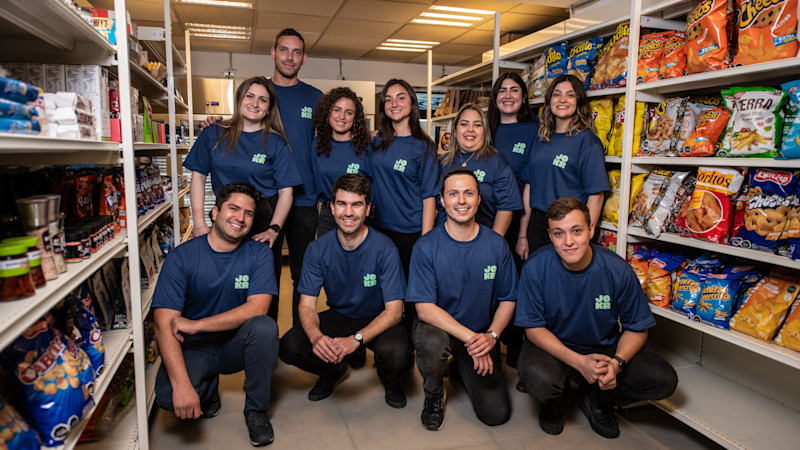- Iterate
- Meet The Team
- How the Rise of Instant Delivery Will Influence the Sharing Economy
How the Rise of Instant Delivery Will Influence the Sharing Economy
Table of contents
The Org spoke with Tyler Trerotola, the U.S. CEO of Jokr to understand how instant delivery will influence our relationship with the sharing economy.

Better wages and benefits for all employees
Perhaps one of the most significant differences between companies in the sharing economy and companies in the on-demand economy is the way in which workers are employed.
Complications around gig employment have been an ongoing issue, with many claims around workers being unfairly compensated. On the contrary, unlike Uber and Lyft drivers who are often considered contract workers with no employment benefits, the on-demand space favors hiring all their employees full-time.
This is true for Jokr, where every worker is given a competitive wage with benefits and career growth trajectories.
“I think the more we do for our employees on the frontline, the better our services,” Trerotola told The Og. “I prefer to have a full-time employee over a gig worker because you have more control over the customer experience.”
Much of the on-demand economy relies on the speed at which they can deliver goods and services, and having full-time employees can enable companies such as Jokr to deliver services in a shorter period of time.
“Having riders that are already on site versus relying on a third party gig worker with a floating supply base is better for the business model,” Trerotola said.

A strong focus on local communities
Companies in the sharing economy do not own assets, which is vastly different from the on-demand service providers that often own the goods and services they sell.
In Jokr’s case, the startup has multiple hubs spread across cities where they operate. Each hub is a physical storefront, stocked with groceries and home goods that are tailored to the neighborhood it exists in.
“Today we have about 2000 to 3000 items at each hub and we’re starting to expand that assortment to 5000 to 10,000 items to become more of a supermarket,” Trerotola said. “We source locally from mom and pop shops in the area.”
As Jokr evolves, Trerotola hopes that the hubs will eventually open up to the local community allowing customers to walk in and place their orders and also become more integrated with the local community.
“I really want to make these community centers where we are able to deliver anything to you instantly but also if you were walking by the neighborhood you could pop in and check out the store and place an order right then and there,” he said.
The future of retail?
With COVID-19 restrictions being lifted in large cities, there have been concerns about whether instant delivery services will survive. Despite this, Trerotola is optimistic.
“I think what we've seen is a reshaping of the way people see grocery shopping,” Trerotola said. “With quick, convenient services, people realize that they can do what usually took them an hour in the grocery store within fifteen minutes – it gives them back that additional time in their life to spend with friends and family.”
Eventually, Jokr hopes to change the way consumers understand retail.
“We started out as an instant grocery platform, but where I want to take the company is giving more options to our customers – that could be moving to a space where we have scheduled delivery as an option. It's really getting a customer what they want, when they want it,” Trerotola said.
What does all of this mean for the sharing economy?
Although the on-demand space is still in its infancy, it is undoubtedly a space where businesses are able to become more competitive by having a better understanding of customer demands, without the reliance on third parties.
For many companies active in the sharing economy world, it may be a time to adopt similar attitudes to the changing consumer behavior.
Create your own free org chart today!
Show off your great team with a public org chart. Build a culture of recognition, get more exposure, attract new customers, and highlight existing talent to attract more great talent. Click here to get started for free today.
In this article


The ORG helps
you hire great
candidates
Free to use – try today